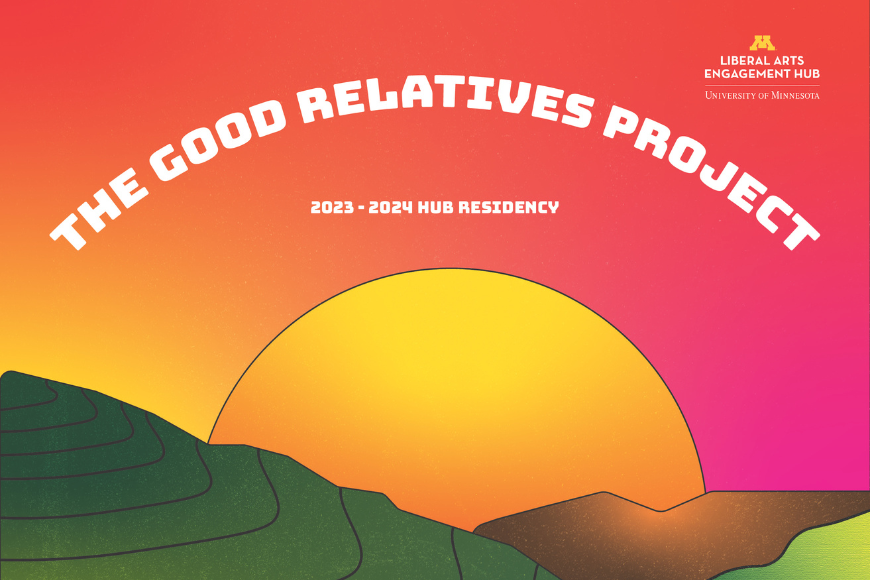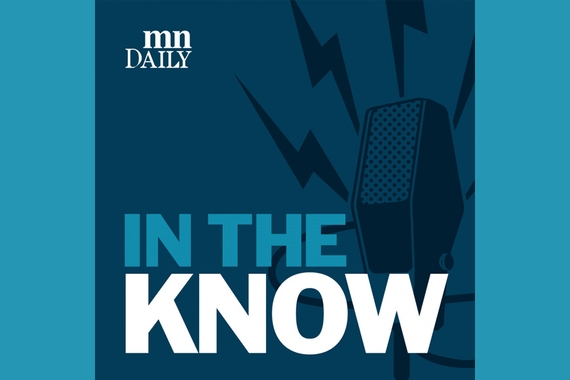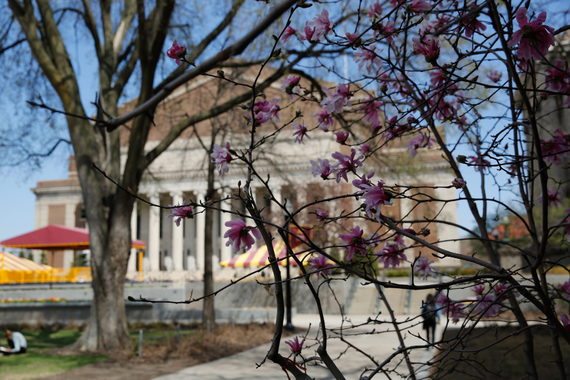Bridging the Gap between University Research and Tribal Nations
“What is it that connects or disconnects us as people who are heavily invested emotionally and intellectually in working with our own and other Indigenous communities?” asks Elizabeth Sumida Huaman, faculty affiliate in American Studies, American Indian Studies, and Gender, Women & Sexuality Studies. “In what ways do those connections that we have in our communities facilitate our research and facilitate community connections to the University? What are the ways in which those connections occur? What threatens them, and what strengthens them?”
These are the types of questions she and her interdisciplinary research partners address in the ”Good Relatives Project: Indigenous Knowledge Systems, Place-based and Diasporic Ecologies of Science, Art, Education, and the Meaning of Connection.” Their team was selected for a residency at the Liberal Arts Engagement Hub (The Hub), a dynamic space for University scholars and community members to connect in important conversations around critical social issues, promoting community engagement and civil society through public engagement initiatives.
Finding Foundations
The Good Relatives Project, co-led by Sumida Huaman, first received a Hub Residency during the 2023-2024 academic year. The name for the project was inspired by Dakota team member Iyekiyapiwin Darlene St. Clair (Lower Sioux Indian Community). According to St. Clair, being a good relative can serve as a guiding question for one’s comportment and relationship-building with all other beings in the world and is fundamental to being a Dakota person.
The project’s team is made up of Indigenous and ally researchers working across multiple disciplines with special attention to science, art, education, and environment, all undergirded by Indigenous land-based relations and work. They are interested in using and developing Indigenous knowledge systems and methodologies to both explore and (re)connect relationships between Indigenous land-based work and research and higher educational institutions.
“I'm really interested in what strengthens and maintains but also threatens connections in Indigenous communities and Tribal Nations in the Americas,” Sumida Huaman says. “If communities are the spaces and places that fuel the kind of work that I do, what is it that strengthens, maintains, or threatens my connection?”
The first year of the project was focused on identifying how scientists, social scientists, and humanists understand relationships between people and places, such as how the University connects with local communities, how Indigenous researchers connect with non-Indigenous researchers, and how these different relationships interact with each other across communities, environments, arts, and sciences. Understanding what maintains or destroys these relationships becomes key in understanding how to strengthen them.
“We came together as a group of faculty who are very strongly invested in Indigenous communities,” Sumida Huaman explains. “Our first year was about identifying who we are. How are we coming together? What are the priorities we've identified individually? How do these become collective priorities?” They established a unified goal among project team members during their first year. Co-leaders conversed with each other to identify how different disciplines intersected with each other, building an understanding for how technology, art, and science interact within Indigenous knowledge systems.
Launching Initiatives
With a strong foundation from the previous year, the Good Relatives Project team is set to launch several initiatives with their renewed Hub Residency for 2024-2025, with each member leading their own community-focused project.
One initiative, led by St. Clair, unites University stakeholders with Tribal Nation rights-holders in buffalo restoration, engaging in conversation with the Upper and Lower Sioux communities. Another initiative, being led by American Studies doctoral student team member Phoebe Young (Saginaw Chippewa descendant), centers the organization Dream of Wild Health to co-lead educational conversations around food sovereignty with youth and community members, using Indigenous community knowledges. “It's awesome that we get to work with a student and learn and grow from them,” Sumida Huaman says.
The Good Relatives Project also includes supporting qualitative environmental research on climate change issues in partnership with Tribal Nations. The team also supports Indigenous education initiatives, and are working together to develop advocacy strategies for American Indian educators to use Indigenous Knowledge Systems, such as place-based education, which goes beyond using STEM state standards.
The goal for all these initiatives is to bridge the gap between University research and community interests among different Tribal Nations. “[These initiatives] circle back to addressing our connections to each other, how we help each other out as co-leads, as well as connect to the Indigenous communities we are a part of or have worked with for a very long time,” says Sumida Huaman. “We are invested in our connections as people in the University within our own fields and invested in bringing attention to the real work that is happening in and with Tribal Nations.”
The Future of Indigenous Research
“The Hub recognizing the potential of our work is really meaningful to us,” Sumida Huaman shares. “Being able to have the space and the support to be able to fund the kinds of initiatives that our project is promoting is crucial.”
This research and these initiatives are especially important, because it’s not done in many places. “There's 574 federally recognized American Indian Tribal Nations in the US, and how many have access to the research and other resources at universities like the University of Minnesota?” Sumida Huaman asks.
The mission of the “Good Relatives Project” is to identify and strengthen the connections Indigenous peoples have with their community, environment, and knowledge, but the overall hope is to collaborate with Tribal Nations through existing long-term relationships toward sharing the resources and opportunities that Indigenous rights-holders ought to have.
“Tribal Nations ought to have full control over the ability to protect their own environments,” says Sumida Huaman, reflecting the words of project team member Steve Smith from the College of Food, Agriculture, and Natural Resource Sciences. “Having Tribal Nation researchers moves them closer to that reality.”
The Liberal Arts Engagement Hub
The Good Relatives Project was one of eight Hub Residencies for the 2023-2024 academic year and received a renewal for 2024-2025. The Liberal Arts Engagement Hub seeks to facilitate reciprocal and trusting partnerships between humanistic scholars in the arts, humanities, and social sciences and the community to respond to important social challenges.
This story was written by Lily Zenner an undergraduate student in CLA.



